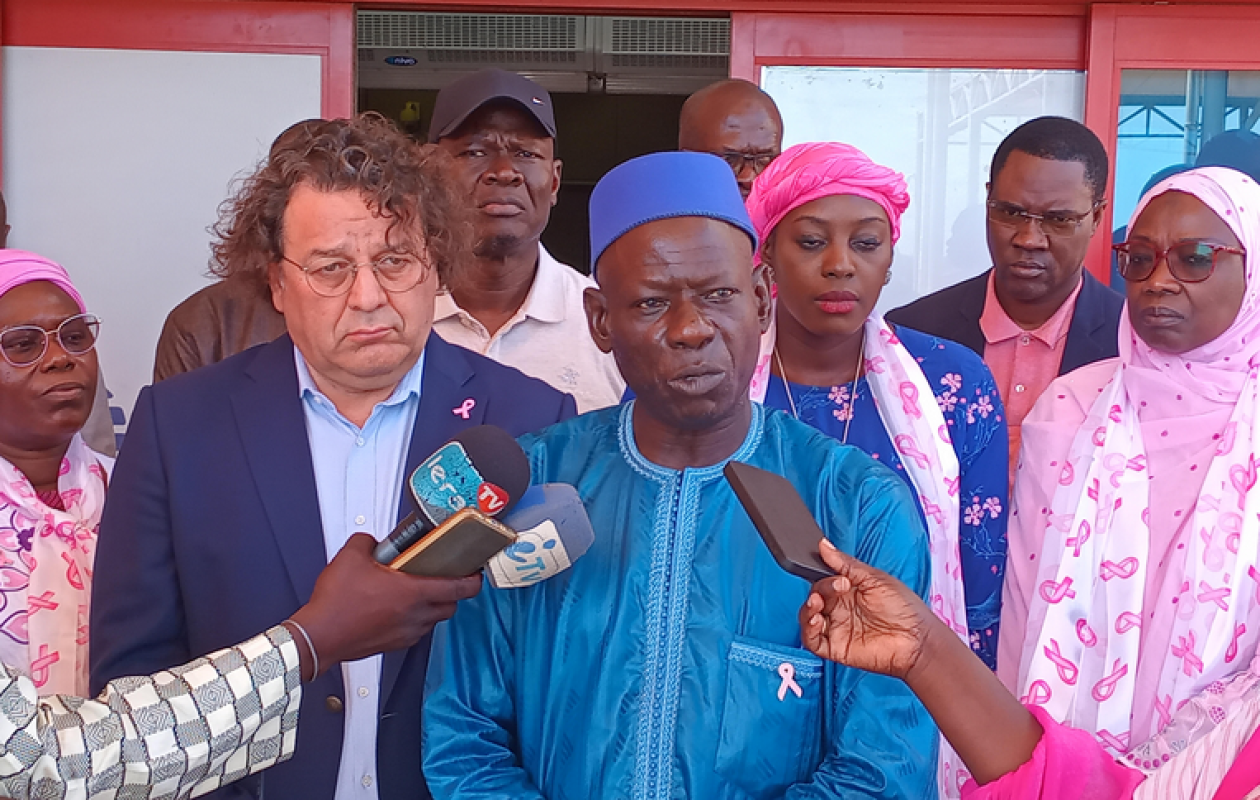
11 000 nouveaux cas de cancer par an au Sénégal : "Ce n’est pas seulement l’affaire des femmes, c’est l’affaire de tous", (Dr Aïcha Fall)
Senegal records nearly 11,000 new cases of cancer each year, according to data from Globocan, the monitoring tool of the International Agency for Research on Cancer (IARC). The two most frequent forms remain cervical cancer (2,076 cases) and breast cancer (1,876 cases), which together cause nearly 1,000 deaths annually.
Faced with this alarming reality, the company LAS (Limak-Aibd-Summa), manager of the Blaise Diagne International Airport (AIBD), organised a large free screening campaign for 200 women from the villages surrounding the airport platform.
The initiative is part of Breast Cancer Awareness Month (October), in partnership with the Senegalese League Against Cancer (LISCA) and the LAS Women's Association. It aims to strengthen the prevention and early detection of cervical and breast cancer, the leading causes of female mortality in Senegal.
"We see LAS not only as an airport operator, but also as a supporter of the communities around us. This screening of 200 women is part of our long-term commitment to support our neighbors through concrete social projects," said Askin Demir, CEO of LAS.
Nine villages targeted, 200 women screened, follow-up ensured
The LAS Women's Association mobilized nine surrounding villages for this campaign.
"We, the women of AIBD, benefit from screenings paid for by our employer. But women from neighboring villages often do not have this opportunity. Thanks to the support of the Director General, we were able to offer this screening to 200 women, and even more," said Ms. Ndiaye, Vice-President of the Association.
According to Dr. Aïcha Fall, company doctor at LAS, the fight against cancer must be a long-term endeavor.
"Screening is good, but the most important thing is follow-up. We make sure to provide medical support to women who are tested. Awareness must be ongoing, because it costs nothing but saves lives," she says, while reminding everyone that screening is quick, painless and free.
A national scourge, alarming figures
For Oumar Diop, in charge of international relations at LISCA, the scale of cancer in Senegal requires continued mobilization.
"The country records around 11,000 new cases each year, more than half of which are female cancers. Cervical and breast cancer remain the most common, but prostate cancer, which affects men from the age of 50, is also on the rise," he argued.
He also reminded everyone that November will be dedicated to the fight against prostate cancer, inviting men to get screened.
"Cancer detected early is cured at a lower cost. Late onset, the chances of recovery decrease considerably," warns Mr. Diop.
"Solidarity and prevention must be at the heart of the fight against cancer. It is not just a women's issue, it is everyone's issue," says Dr. Fall.
Commentaires (2)
C un gros probleme!kes causes sont connues.
Que fait le ministere de la sante?tous ces produits tous ces chimistes en herbe,a quabd?A quand de vraies decisions
Participer à la Discussion
Règles de la communauté :
💡 Astuce : Utilisez des emojis depuis votre téléphone ou le module emoji ci-dessous. Cliquez sur GIF pour ajouter un GIF animé. Collez un lien X/Twitter, TikTok ou Instagram pour l'afficher automatiquement.